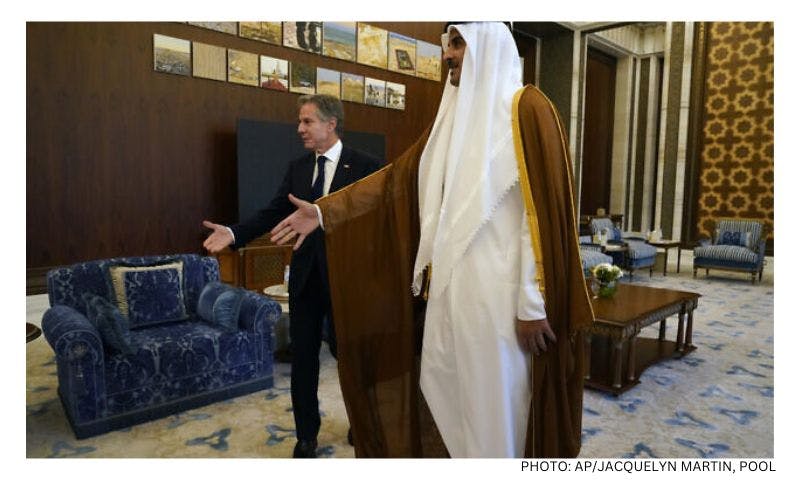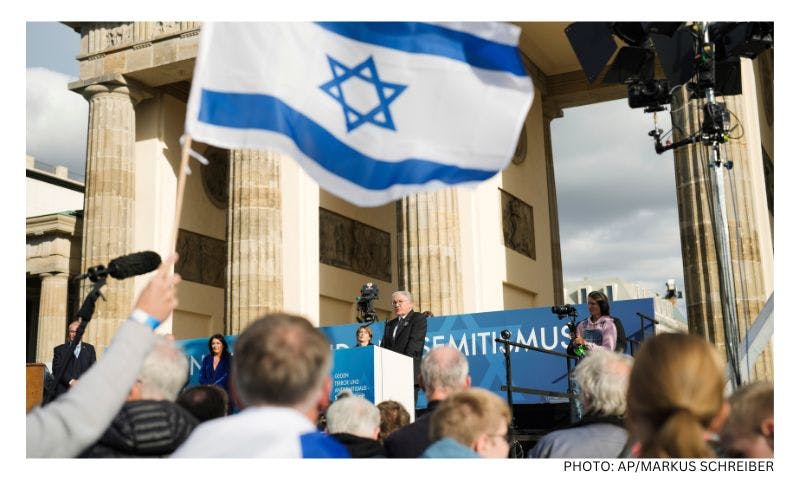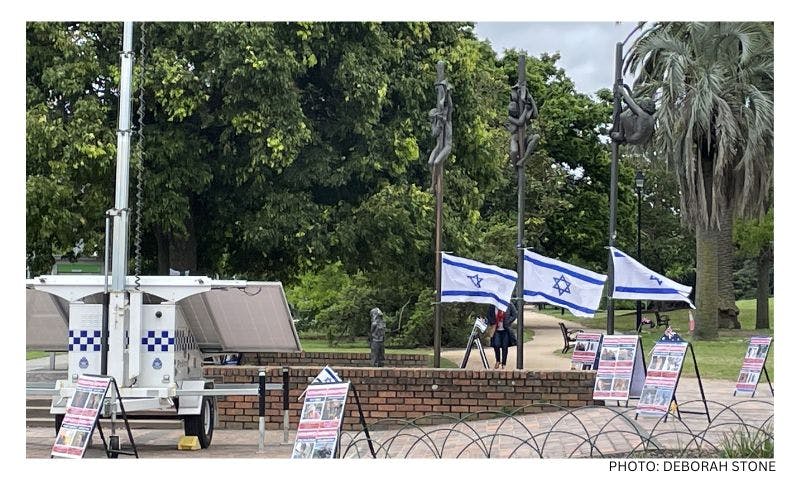Published: 31 May 2022
Last updated: 4 March 2024
NOAM GREENBERGER explains why last week's Court intervention over whether a group of Jews to pray on Temple Mount is key to the conflict over Jerusalem
LAST WEEK THE Jerusalem Magistrates Court temporarily overruled a restraining order that had banned a group of Israeli teenagers from Temple Mount, only to have the ban swiftly re-imposed by the District Court.
Israeli police had banned the teenagers from Temple Mount, arguing they were disturbing the peace. What did they do to allegedly disturb the peace? They bowed down and prayed.
Isn’t Temple Mount a place of prayer, one might ask? Well, it depends.
In the wake of the Six-Day War, then Minister of Defence Moshe Dayan ensured that the administration of Temple Mount (historically known to Muslims as Al-Haram al-Sharif, “the Noble Sanctuary”) would be left with the Jordanian Waqf (Islamic trustees), which had managed the site since 1948.
It is generally understood that this was done to avert the prospect of a religious war between Muslims and Jews. The decision sat comfortably with many Jews because there is a widely accepted halachic (Jewish legal) prohibition on entry by Jews to the site of the Temple, due to issues of ritual impurity.
The right-leaning segments of the Israeli public view Israeli government policy regarding the Temple Mount as a test of its sovereignty over Jerusalem
Thus, the status quo was crafted. Jews could pray at the Western Wall, Muslims could pray at the Dome of the Rock and Al-Aqsa Mosque, and Christians could pray at the Church of the Holy Sepulchre. Under this arrangement, each religion could administer its religious sites and Jerusalem would be a shining example of harmonious religious co-existence. If only it were that simple…
In fact, the status quo is based on premises which are not accepted by all parties. Or to put it another way, the players do not agree on the rules.
Israel’s granting of the right to administer religious sites presupposes it has the authority to do so. However, if, as most Palestinian and Islamic representative parties claim, east Jerusalem is under Israeli occupation, then Israel does not possess any legitimate authority over Temple Mount.
According to this view, the control exercised by the Jordanian Waqf over Temple Mount is not a control delegated by Israel but rather the legitimate continuation of the status that existed prior to June 1967.
If the exercise of Muslim religious sovereignty over the Temple Mount is not the product of Israeli religious tolerance, but rather the rightful exercise of historical Muslim rights (which were never ceded), then any Israeli attempt to regulate or govern Temple Mount (for example, by installing metal detectors at the entrances) is illegitimate. Likewise, Israeli courts do not have jurisdiction to determine who is allowed to pray there.
Separately, the status quo assumes that each of the religious sites is only to be used for public worship by a single religion. Accordingly, non-Muslims have historically been permitted to visit the Temple Mount but not pray there.
This principle has been upheld by Israeli courts which have ruled that freedom of worship is a fundamental right – but one which can be limited in the interests of peace and security (most often, as determined by the police).
The limitations set down by the judiciary and enforced by the police are at odds with the changing attitudes of some streams within Israeli society. Increasingly (although still low in absolute numbers), religious-nationalist Israeli Jews are seeking a greater connection with the Temple Mount. While respecting the Biblical prohibition to set foot on the site of the Temple, some religious-Zionist rabbis allow access to the other parts of Temple Mount.
More broadly, the right-leaning segments of the Israeli public view Israeli government policy regarding the Temple Mount as a test of its sovereignty over Jerusalem (which is often viewed as a microcosm of the country itself).
To this already complex scenario may be added the fear peddled by some Muslims that Jews wish to take over control of the Temple Mount, a claim invented by Haj Amin al-Husseini in the 1920s. Despite abundant evidence to the contrary (including the prohibition in Jewish law), some Muslims fear Jews will destroy the Al-Aqsa Mosque and build a Third Temple on the Mount.
In the spirit of ‘telling a big lie enough and repeating it’ (to paraphrase Joseph Goebbels), any talk of change to the “status quo” on Temple Mount is used as proof of this libel. It has a galvanising power among the (mostly Muslim) Palestinian population that is a major consideration for the Israeli government.
Over time ‘Al-Aqsa’ (referring to the Farthest Mosque, in the southwest corner of the Temple Mount) has come to refer to the entire Temple Mount / Haram al-Sharif complex. This shift is also reflected in the general behaviour expected of worshippers and visitors by the Jordanian Waqf at the Temple Mount and not just within its shrines - which has changed over time. These changes have a consequential impact on how the Jordanian Waqf defines the “status quo” and leave no room for non-Muslim worshippers to pray on Temple Mount.
In the case of the last week’s teenage prayer group, the Jerusalem District Court overturned the earlier Magistrates Court decision and upheld the police order that the teenagers were disturbing the peace.
Due to the fragility of the status quo and the pivotal place of Temple Mount in issues of sovereignty, a silent prayer is interpreted as disturbing the peace, and the public interest in peace and security is invoked to restrict the freedom to practice one’s religion.
Photo: Police officers escort a group of religious Jews at the Temple Mount compound in 2019. (Mahmoud Illean/AP)




